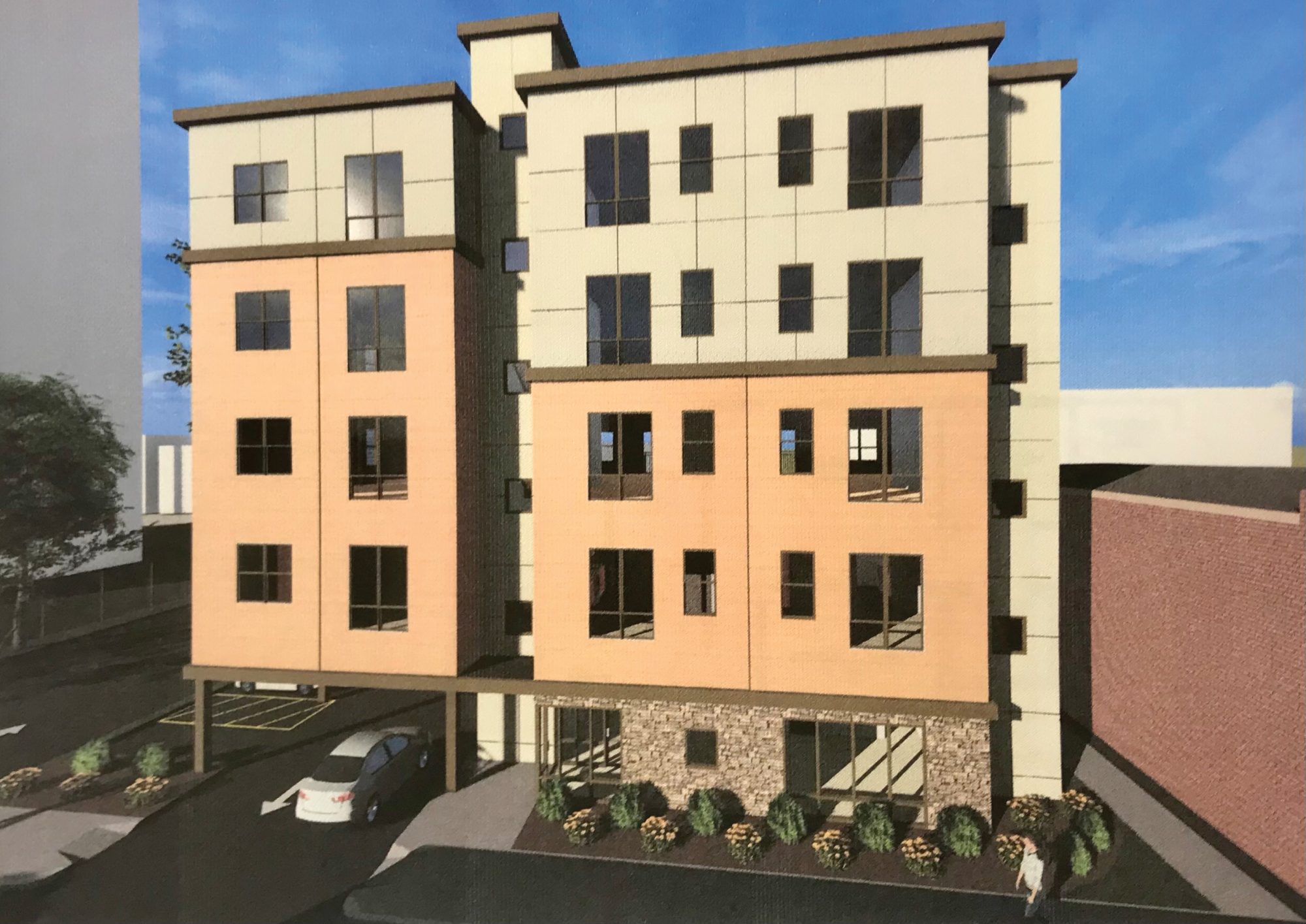LYNN — The Zoning Board of Appeals (ZBA) unanimously approved variances for a 28-unit development on Farrar Street on Tuesday evening, despite numerous testimonies given in opposition to the project.
The developer, Sawyer Realty Partners, is planning to invest $6 million to build a five-story apartment building at 26 Farrar St. instead of the one-story office building that is currently on the property.
The building will feature studios of 315 to 400 square feet; 500-square-foot one-bedroom apartments and 750-square-foot two-bedroom units.
The developer’s attorney, Samuel Vitali, told the board that the project won’t be displacing anyone in the neighborhood as no one lives in the existing building, but will rather bring much-needed housing to the city.
Although affordable units are not required by law in this situation, Vitali said, the developers are ready to designate 10 percent of the units as affordable and lower the eligibility threshold for renters from 80 percent of the area median income (AMI) to 60 percent.
“They’ve been good citizens,” Vitali said.
He also emphasized that based on previous meetings with other committees and organizations, the project enjoys the support of the mayor, the Lynn Development Team, and the Economic Development & Industrial Corporation of Lynn (EDIC/Lynn).
The project, however, required some variances. Due to the size of the lot, the project can only accommodate 20 parking spaces, although by law the developers are required to provide 1.5 parking spaces per each unit, which would total 42 parking spaces.
According to city zoning bylaws, all parking spaces are required to be five feet away from the street line, but one of the project’s parking spaces was not meeting that requirement.
At a little under 11,000 square feet, the project’s lot area is significantly below the required 15,000 square feet for this size of the building, which makes the building area slightly larger than permitted by law.
ZBA member Son Wooten read aloud letters in support of the project from the Ward 5 Councilor Dianna Chakoutis, EDIC/Lynn and the Lynn Development Team, which was introduced by Mayor Jared Nicolson in February. The Lynn Development Team consists of EDIC/Lynn Executive Director James M. Cowdell, Lynn Housing Authority & Neighborhood Development Executive Director Charles J. Gaeta, Community Development Director James Marsh, Chief of Inspectional Services Michael Donovan and City Planner Aaron Clausen.
Several people who attended the meeting spoke in opposition to the project.
KimYen Tran, a city resident of 27 years and business analyst, said that even at 60 percent AMI the studios at Farrar Street will titter on affordability, when a job posted at City Hall pays only $36,000. She said the developers should be offering at least 25 percent of the units as affordable.
“Someone like myself cannot afford to have children or a car,” said Tran.
Attorney Carl Goodman, who represented the Local 201 union, which is headquartered on Exchange Street and whose parking lot is across from the proposed development, said that he was struck by the focus of the conversation on the affordability component of the project.
“This board is not tasked with affordability,” said Goodman, stating that that was a political issue, important to the city and the public, but not the issue in front of the ZBA. “This variance needs to be denied as a matter of law.”
Goodman pointed out that the project had dimensional issues and only met half of the parking requirements in an area that has parking issues “at the best of times.”
Isaac Simon Hodes, a community activist with Lynn United for Change, said that residents on Newhall Street were concerned about congestion and parking.
“I can’t tell you how adamant people are about it,” said Hodes.
Since many people living in the area don’t speak English, they have been having issues communicating with their city councilor about the project or setting up a meeting, Hodes said.
He also pointed out that new residents with higher income will drive rents up in the area, which can displace low-income people in the neighborhood.
Jessica Rosenberg, principal and founder at Sawyer Realty Partners, said that their rents are lower than other companies’ in the city.
“We are a for-profit company. In our company’s lifetime we have always supported the development of affordable housing,” said Rosenberg. “If I could make the numbers work from the underwriting standpoint, that is what we would be presenting today.”
After the public had a chance to express their opinions, the ZBA voted unanimously to approve the variances requested by the developers.

